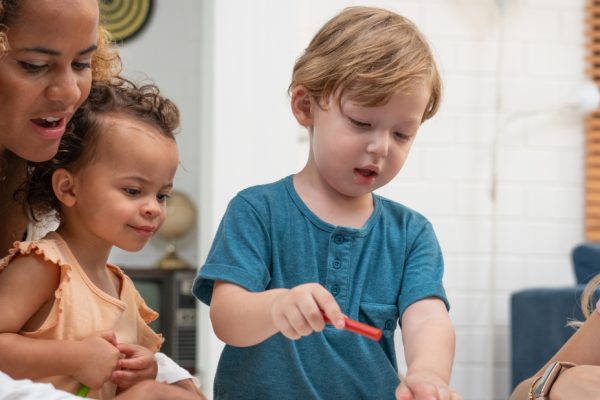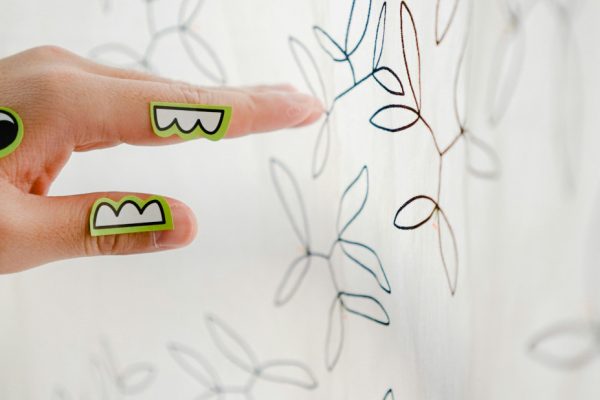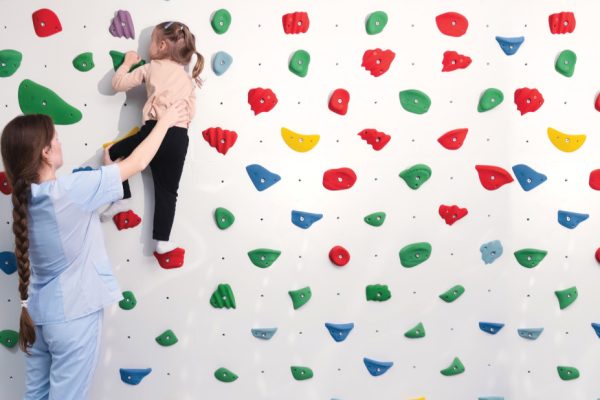
Diagnosis: processing the news
Your reaction & feelings
It’s no exaggeration that your world tilts on its axis when you receive a disability diagnosis for your child. Whether the news comes prior to their birth, just after their birth or after a long battle to find what the issue is, a whirlwind of emotions is stirred up, triggering what amounts to a grieving process. Shock, disbelief, anger, guilt, sadness…these are all valid things to be feeling as you come to terms with the fact that the life you envisaged for your child, and your family, is quite possibly going to look quite different to that which you imagined.
Grieving for your child doesn’t mean that you do not love and appreciate them as they are; it is simply a natural and normal way of coping and adjusting to the unexpected.
The grief and other emotions you may feel will most likely not be linear, but rather a series of stages that you may cycle through at different times. These stages may include denial, anger, bargaining, depression, and eventually acceptance. By recognising and accepting these stages, you can begin to work through your emotions and gradually find peace and resilience with your new ‘normal’.
ACCESS INFORMATION & SERVICES
It quickly becomes obvious that knowledge is power when it comes to parenting a child with a disability. And in the early days of diagnosis, make a start by gathering information from a range of sources. Educate yourself about your child’s condition, find out about the services that can help, and uncover practical strategies to nurture their growth & development. Make a start with some resources on page 21. Also subscribe to Source Kids and keep an eye on our website for constant updates and info to support you on your journey!
REACH OUT
You may feel incredibly isolated when you first receive a diagnosis for your child, but there are others out there that can help you. Seeking support from parents & carers who have gone through similar experiences can be immensely helpful, not only in knowledge sharing , but also for much needed emotional support. Search for online groups and forums that provide spaces where you can connect with parents & carers who understand the challenges you’re facing. As you build your network you’ll find that there are lots of real world meet ups to help you find friendly faces too.
Building this network of support with family, friends, and professionals who are knowledgeable about the child’s disability can create a strong foundation for navigating the road ahead. Your ‘team’ can offer emotional support, lend a helping hand when needed (even if it’s just a virtual one!), and collaborate on finding the best resources and interventions for your child.
Processing the news: telling others
In addition to dealing with your own response to your child’s diagnosis, there is the added complexity of working out how, when and what to tell others. There’s no right or wrong approach to this – every family will have their own preferences and comfort levels in what to share. You may choose to be open and educate others about your child’s condition, while others may prefer to keep it more private. Do what feels right for you and in your own time.
The following are some general tips that may work for you if you decide to share the news with close friends & family:
Choose the right time and place
Finding the right time and place to share the news is essential. Pick a calm and comfortable setting where everyone can have an open and uninterrupted conversation. It’s also important to choose a time when you and your loved ones can dedicate sufficient attention and emotional energy to the discussion.
Be open and honest
When sharing the diagnosis, be open and honest about your child’s condition. Explain what it means, how it may affect your child’s life, and how it impacts your family. Emphasise that while challenges may exist, your child is still the same unique and lovable individual they have always been. Of course, if you don’t have answers or don’t want to discuss a certain element – let people know your boundaries.
Provide information and resources
To help others understand your child’s condition better, provide them with reliable information and resources. This could include brochures, websites, or books that explain the disability in simple terms. Encourage them to ask questions and offer to provide further information or connect them with relevant support organisations.
Be patient and allow for processing time
Everyone processes information differently, and your loved ones may need time to absorb and understand the news. Be patient and understanding if their reactions vary or if they need some time to come to terms with the diagnosis. Continue to provide support and keep the lines of communication open.
Whichever way you decide to approach this, do what feels right for your family, and prioritise the needs of your child. Open communication, patience, and respect for personal boundaries can help navigate relationships and build a supportive network.
Sharing the news with siblings
IT IS IMPORTANT THAT CHILDREN HAVE ACCURATE INFORMATION ABOUT THEIR SIBLING’S DIAGNOSIS.
• Be clear and concise and honest, using age-appropriate language and concepts.
• Provide the information necessary to convey the ‘facts’ as they pertain to the sibling’s life, e.g. what the child with disability requires and why e.g. any equipment or supporting aides, modes of communication, environmental changes, or other support, and discuss any altered appearance or behaviours displayed.
• Ask your child what they think their sibling’s diagnosis means and ensure that their understanding is accurate.
• Make use of books and other age-appropriate resources
• Offer ways that your child can help if they choose to, making it clear that it is an option.
• Provide an opportunity for your child to meet peers who have a sibling with the same diagnosis.
• Convey the importance of your relationship with your child, regardless of their sibling’s needs. Schedule alone time with them if you can.
• Ensure that your child knows that there are no ‘correct’ feelings or thoughts they may be having and that you are always willing to talk with them.
Sharing the news with school
EACH STATE WILL HAVE ITS OWN PROCEDURES REGARDING NOTIFICATION OF A VERIFIED DISABILITY. HERE ARE SOME GENERAL TIPS
Notify your child’s school about the diagnosis, ensuring they have a comprehensive understanding of your child’s needs.
Meet with the school staff, including teachers, counsellors, and administrators, to discuss appropriate accommodations and support strategies.
Consider how you may want to share the diagnosis with your child’s class and friendship groups.
Encourage open communication between the school and your family, providing updates on your child’s progress and addressing any concerns.
Seek support from local support groups or organisations that specialise in your child’s disability, as they can offer valuable resources and advice.






